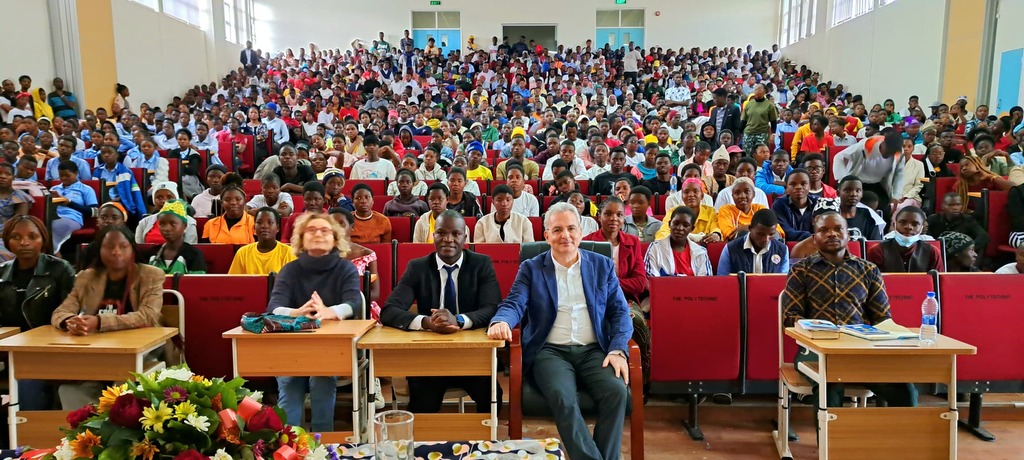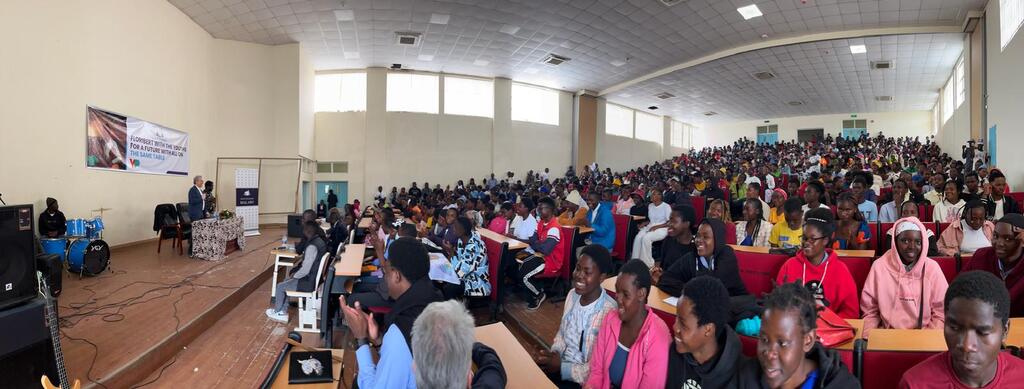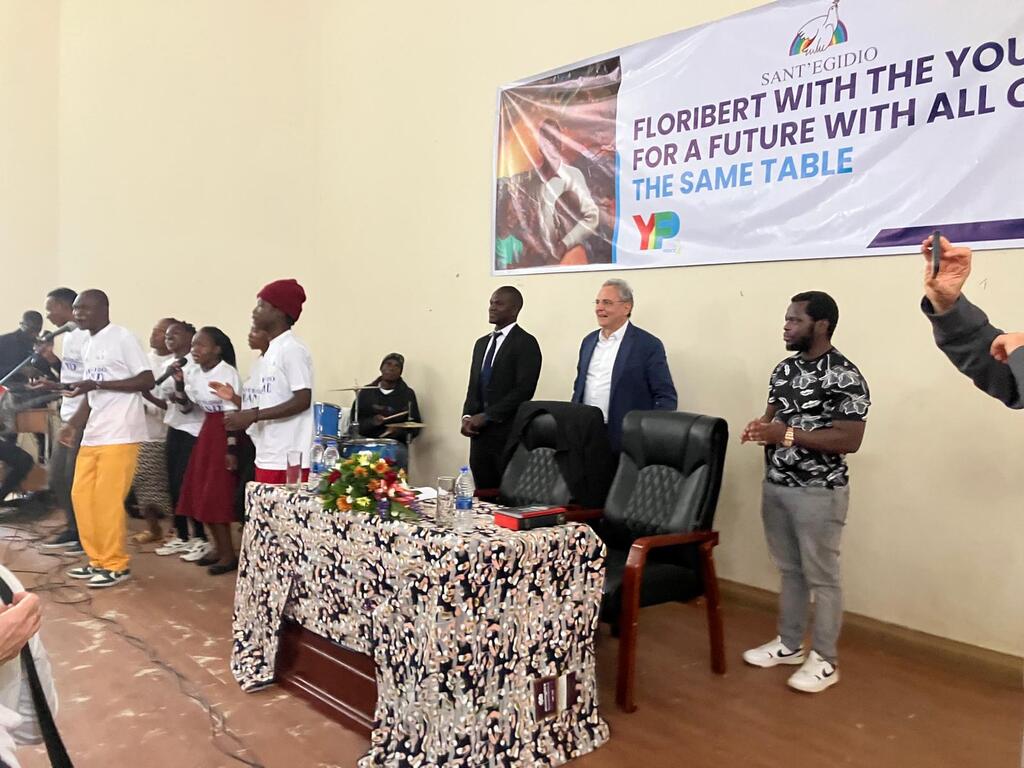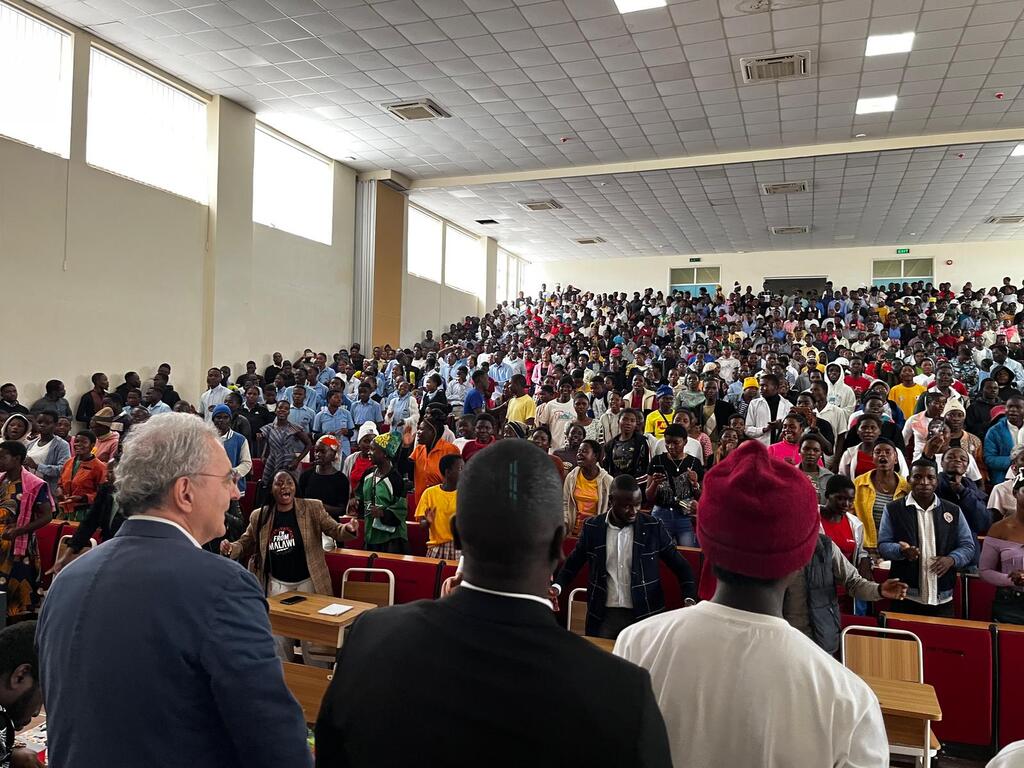On 12 July, a large assembly of Youth for Peace took place in Blantyre, bringing together young people from different areas of the Malawian city and from many schools where the movement is present. More than a thousand young people gathered with Marco Impagliazzo for a meeting titled ‘Floribert and young people: all at the same table’. In Malawi, young people under the age of 18 account for more than 51% of the population. In recent years, university education has seen considerable growth, yet this has not been matched by a similar increase in job opportunities.
Unemployment and emigration have now emerged in the world of young people, causing them profound pain. This contradiction dampens their hope for the future and undermines their enthusiasm. In recent years, Malawi has entered the globalised world and faced rapid changes.
In this rapidly evolving, extremely competitive society, the proposal offered by the Youth for Peace had strong resonance, nurturing hope and courage. The crucial transition ‘from “I” to “we”’, in order to build a world that is like ‘a table where there is a seat for everyone’, as expressed by Blessed Floribert, has been welcomed by many.
Marco Impagliazzo outlined ten points for an alternative life that would make the world a better place, including: no to violence, yes to dialogue and encounter; no to ignorance, yes to knowledge and learning. A further quote Floribert Bwana Chui: ‘There is always another way’ was a key slogan among the young people at the assembly.
Many young people expressed their gratitude for the story of the young Congolese martyr, described as a source of inspiration, a ‘symbol of courage,’ a ‘tree of peace,’ and a witness to an alternative and possible path ‘that can make young Africans strong,’ so that ‘they can dream and build a different Africa, generous and free from the dictatorship of materialism.’ ‘If we follow his example, God will be proud of us and fill us with blessings,’ commented one young man.
Prior to the meeting, Blantyre had hosted more than a hundred representatives from towns and villages for a two-day meeting during which the main challenges facing the country had been discussed. (see photo)
.jpg)
Malawi is traditionally rural, with more than 85% of the population living in the countryside. Here too, as in other parts of the world, urbanisation has accelerated, revealing new challenges and bringing with it the contradictions typical of uneven and rapid growth. The country is also preparing for the upcoming elections, scheduled for next September. During the two days, emphasis was placed on the increase in violence in some neighbourhoods of the cities, the discontent among young people, and the economic and financial difficulties the country is facing, as well as a climate of tension in the run-up to the elections. Malawi, however, has always been a peaceful country and, in light of the personal story of Blessed Floribert and the unfolding situation in the Congo, wounded by decades of fratricidal war, it was stressed that the gift of peace cannot be wasted but must become an opportunity to communicate the Gospel to many, including an emerging but lively middle class of the Malawian population.
Considering this context, the example of the young African martyr can inspire many, even in Malawi, to resist the power and cult of money and to show that there is always an alternative to evil, indifference and corruption.

















